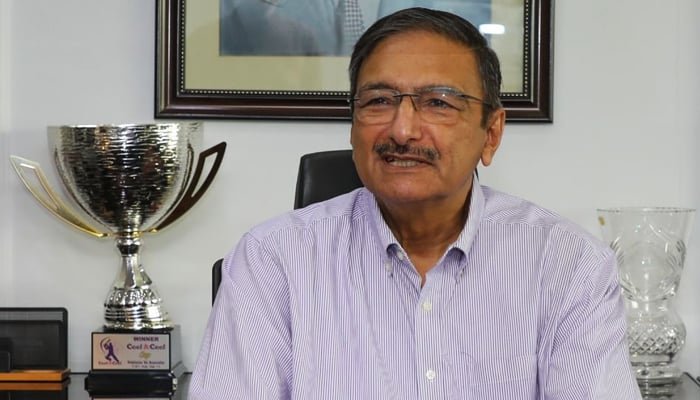Following the abrupt departure of his predecessor Najam Sethi, Zaka Ashraf, backed by the Pakistan Peoples Party (PPP), assumed the role of the head of the Pakistan Cricket Board (PCB) Management Committee on Thursday.
In an official statement, the cricket board confirmed that all necessary formalities related to Ashraf’s appointment had been completed. Senior PCB officials warmly welcomed the new chief upon his arrival at the headquarters in Lahore, where he was scheduled to chair a meeting of the 10-member committee. The Cabinet Division had approved the committee’s formation through circulation on Wednesday.
Ashraf’s appointment came after the Pakistan Muslim League-Nawaz (PML-N) and the PPP had conflicting opinions regarding the appointment, with the PPP supporting Ashraf and the PML-N supporting Sethi. However, Sethi decided to withdraw from the race, clearing the way for Ashraf’s appointment.
The newly formed Management Committee, consisting of 10 members, including Zaka Ashraf as the ex-chairman of PCB, has been established for a four-month period. Ashraf expressed gratitude to all, including the Prime Minister, for entrusting him with the position.
The Ministry of Inter-provincial Coordination (IPC) submitted a summary to the Prime Minister’s office, suggesting the constitution of a new Management Committee for a four-month period. The proposal aimed to address challenges arising from imminent international cricket events, major decisions at the International Council of Cricket (ICC), and to ensure effective management of PCB. Additionally, the ministry recommended the removal of the incumbent election commissioner of PCB due to perceived inefficiency and the appointment of Mahmood Iqbal Khakwani, Advocate, Supreme Court of Pakistan, in his place.
Subsequently, the federal government issued a separate notification to implement the changes. The PCB Management Committee had been dissolved upon the completion of its extended tenure, and the affairs were handed over to the Election Commissioner of PCB. However, due to delayed decisions, elections could not be conducted, leading to an uncertain situation and resulting in various legal disputes.


